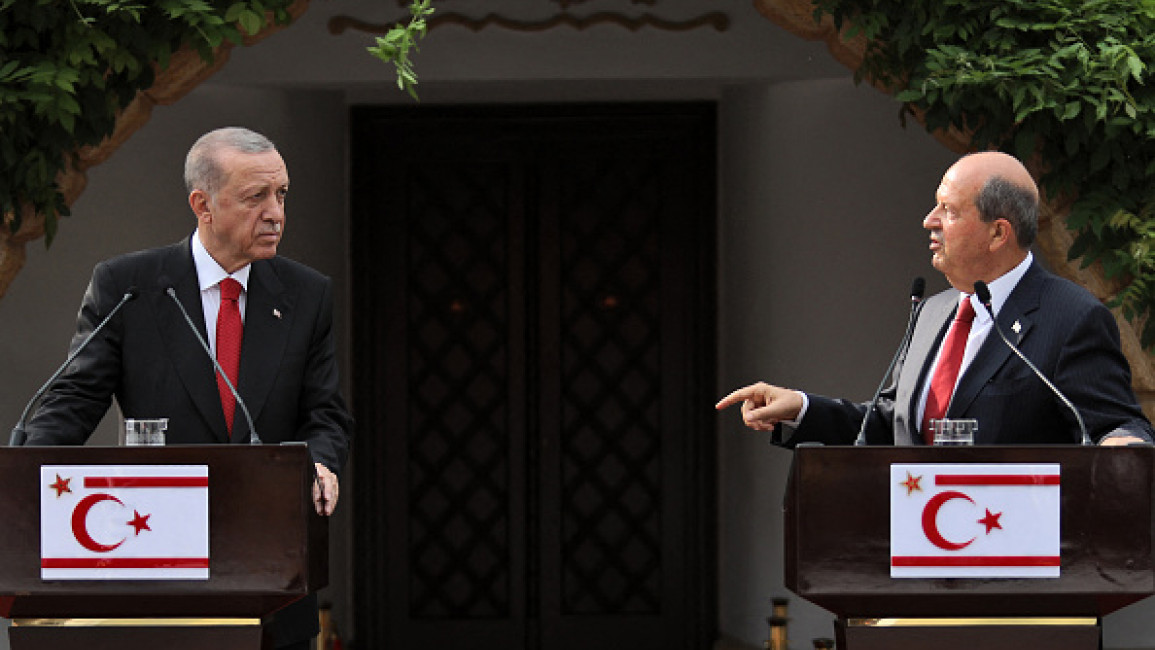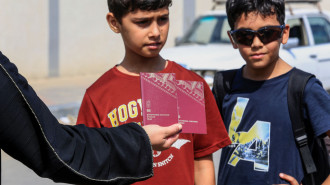President Erdogan 'demands international recognition' of northern Cyprus
Turkish President Recep Tayyip Erdogan redoubled his call Monday for the international recognition of northern Cyprus, making the Mediterranean statelet his first port of call since his re-election.
Erdogan met the north's leader Ersin Tatar, whose rule is recognised only by Turkey, two weeks after extending his two-decade rule until 2028.
"If there is to be a return to the negotiating table, the way to do this is through recognition" of the north, Erdogan declared.
Cyprus has been divided since 1974 when the Turkish army invaded the northern third of the island in response to a coup that had sought to unite the entire island with Greece.
United Nations peacekeepers patrol a buffer zone separating the self-proclaimed Turkish Republic of Northern Cyprus (TRNC) from the internationally recognised south.
Turkey's calls for a "two-state solution" to the Cyprus issue have been rejected by Greek Cypriots who comprise a majority in the south. The Republic of Cyprus along with the international community favours a bi-zonal, bi-communal federation in line with a UN framework.
Although Erdogan comfortably won last month's runoff, he lost to his secular rival Kemal Kilicdaroglu by 15 points in the northern Cyprus portion of the vote.
Nearly 144,000 voters were registered in northern Cyprus, including Turkish settlers and troops and Turkish Cypriots who hold Turkish citizenship.
Erdogan's performance was hurt in part by an economic crisis that has swept across Turkey and undermined the north's economy, which relies on Ankara for support.
But some analysts also attributed it to a more accommodating stance taken on the status issue by Kilicdaroglu's party during the campaign.
Erdogan rejected compromises during his joint appearance with Tatar.
"The just demands of the Turkish Cypriots are clear and unequivocal," Erdogan said.
"There are two separate peoples in Cyprus," Tatar added.
The island's status is one of the world's longest-running disputes. It has been a source of tension across the Mediterranean region for decades, heating up in more recent years because of the discovery of large energy deposits in the region.
It has also contributed to Turkey's uneasy relations with Greece and the rest of the European Union.
Ankara maintains more than 35,000 troops in the north.
There have been no formal UN-sponsored peace talks for nearly six years.
Greek Cypriot leader Nikos Christodoulides, who won his own runoff election in February, wants a greater EU role on the Cyprus issue.




 Follow the Middle East's top stories in English at The New Arab on Google News
Follow the Middle East's top stories in English at The New Arab on Google News


![The US vetoed a UN Security Council (UNSC) resolution demanding a ceasefire in Gaza [Getty]](/sites/default/files/styles/image_330x185/public/2185152251.jpeg?h=7ef8ac04&itok=RpLSj2pu)